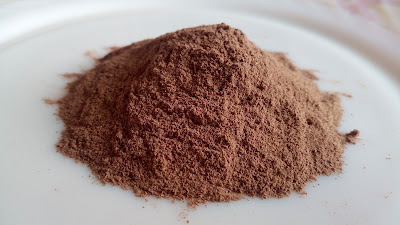Liver tonic foods & herbs and liver damaging foods & herbs
Liver is the
largest vital organ of human body. The main function of liver is metabolism of
carbohydrate, protein & fat. Besides it helps to proper synthesis &
excretion of bile; storage of vitamins & minerals; excretion of toxins,
drugs & some hormones etc.
Hepatoprotective
foods & herbs help to boost liver functions; on the other hand, liver damaging foods
& herbs destroy liver texture, function & activities.
So, it is very
important to know which foods & herbs are liver tonic & which are harmful
for liver.
Liver tonic
foods:
Papaya (Carica
papaya)
Pineapple (Ananas
comosus)
Pomegranate (Punica
granatum)
Bel fruit/
Bengal quince (Aegle marmelos)
Muskmelon (Cucumis
melo)
Watermelon (Citrullus
lanatus)
Cucumber (Cucumis
sativus)
Java plum (Syzygium
cumini)
Radish (Raphanus
sativus)
These are
hepatoprotective foods. The main pharmacological action of these foods is
anti-inflammatory action. Besides these foods have detoxifying, antioxidant, antibacterial,
antifungal, antimicrobial, antiulcer, hypolipidemic properties that helps to
maintain metabolism & other functions of liver.
Liver tonic
herbs:
Kalomegh/Creat (Andrographis
paniculata)
The
pharmacological actions are anti-inflammatory, anti-cancer, anti-obesity,
anti-diabetes, and other activities.
Chirata (Swertia
chirata)
The
pharmacological actions are anti-inflammatory, hepatoprotective, hypoglycemic,
antibacterial, antifungal, antimalarial, antiaging, antidiarrheal and cardio-stimulant.
Rhewand chini/Rhubarb (Rheum
officinale)
The
pharmacological actions are anti-inflammatory, antioxidative, cathartic and it
helps to promote excretion and decrease reabsorption of bilirubin.
Dar hald/Barberry (Berberis
asiatica)
The
pharmacological actions are alternative, demulcent, diaphoretic, and diuretic.
It is widely used in the treatment of diarrhoea, jaundice, skin diseases,
chronic rheumatism and urinary disorders.
Chicory (Cichorium
intybus)
The
pharmacological Actions are hepatoprotective, anti-inflammatory, antioxidant,
immunological, sedative, hypolipidemic, anticancer, anti-protozoal activities.
It is widely used in the treatment of gallstones.
Afteemon/Bindweed, air creeper (Cuscuta reflexa)
The
pharmacological actions are antioxidant, analgesic, blood purifier, carminative,
sedative, deobstruent, resolvent, febrifuge, demulcent, diaphoretic, diuretic, emmenagogue,
expectorant and purgative.
Amoltash/Golden shower (Oroxylum
indicum)
The
pharmacological actions are anti-inflammatory, anti-ulcerative, anti-hyperglycemic
and anti-dyslipidemic activities.
Irsa/Orris root (Iris ensata)
The
pharmacological actions are anti-inflammatory, anti-oxidative,
anti-tumour activities.
Lemon grass (Cymbopogon
citratus)
The
pharmacological actions are anti-inflammatory, anti-amoebic, antibacterial,
antidiarrheal, antifungal and anti-filarial properties.
Tipatti/Indian sorrel (Oxalis
corniculata)
The
pharmacological actions are anti-inflammatory, analgesic, astringent, lithotriptic,
detoxifying, diuretic, emmenagogue, febrifuge, relaxant and stomachic.
Saffron (Crocus
sativus)
The pharmacological
actions are antioxidant, anti-depressant, anti-convulsant, anti-anxiety, memory
improvement, antidiabetic and emmenagogue properties.
Phalsa/Grewa (Grewia
asiatica)
The
pharmacological actions are antioxidant and antimicrobial activity.
Biskhapra/Spreading
hogweed (Boerhaavia diffusa)
The
pharmacological actions are anti-inflammatory, anti-hepatotoxic, analgesic
activity.
Bhui Amla/Niruri (Phyllanthus
niruri)
The
pharmacological actions are anti-inflammatory, hepatoprotective, cardioprotective,
antiviral, antibacterial, analgesic, hypolipidaemic, hypoglycaemic properties.
Mako/Black night
shade (Solanum nigrum)
The
pharmacological actions are anti-inflammatory, antioxidant, hepatoprotective,
diuretic, anti-tumorigenic and antipyretic agent.
Haleela/Chebulic
Myrobalan (Terminalia chebula)
The
pharmacological actions are antioxidant, antimutagenic, anti-diabetic anti-carcinogenic activity,
radioprotective, hepatoprotective, cardioprotective, cytoprotective, reno-protective
and free radical scavenging activity.
Mastagi/Mastich (Pistacia
lentiscus)
The
pharmacological actions are anti-inflammatory, antioxidant, anti-atherogenic, antimicrobial,
anticancer, anti-arthritis, anti-asthmatic and hypotensive activity.
White cumin (Cuminum
cyminum)
The
pharmacological actions are anti-inflammatory, analgesic, antioxidant, antimicrobial,
anticancer, antidiabetic, hypotensive, bronchodilatory, immunological,
contraceptive and anti-osteoporotic etc.
Black caraway (Carum
carvi)
The
pharmacological actions are anti-inflammatory, antibacterial, antimicrobial,
antiulcerogenic, anti-diabetic, antiproliferative and
anti-spasmodic activities.
Ajwain/Bishop’s weed (Carum
copticum)
The
pharmacological actions are antioxidant, antibacterial, antifungal, antiparasitic,
and hypolipidemic effects.
Nutmeg (Myristica
fragrans)
The
pharmacological actions are anti-inflammatory, antioxidant, hepatoprotective, analgesic,
antimicrobial, anticancer, antidepressant, antidiabetic, anti-obesity, and memory
enhancing effects.
Cardamom (Elettaria
cardamomum)
The
pharmacological actions are anti-inflammatory, analgesic, antioxidant, anticonvulsant
and antimicrobial effects.
Greater cardamom
(Amomum subulatum)
The
pharmacological actions are anti-inflammatory, analgesic, carminative,
diuretic, stomachic antimicrobial and cardiac stimulant.
Cinnamon (Cinnamomum
zeylanicum)
The
pharmacological actions are carminative, stomachic and antibacterial
properties.
Clove (Syzygium
aromaticum)
The
pharmacological actions are antioxidant, anti-inflammatory, antiviral,
antimicrobial, antifungal and anticancer activities.
Kababchini/Cubeb (Piper
cubeba)
The
pharmacological actions are anti-inflammatory, antioxidant, antihypertensive,
antipyretic, analgesic, antidiarrheal, antispasmodic, antibacterial, antifungal,
antitumor activities etc.
Ginger (Zingiber
officinale)
The
pharmacological actions are anti-inflammatory, antioxidant, anti-hyperglycemic,
anti-hyperlipidemic, anticancer, anti-apoptotic and anti-emetic actions.
Turmeric (Curcuma
longa)
The
pharmacological actions are anti-inflammatory, antioxidant, antimicrobial,
antitumor and hepatoprotective activities.
Raisins (Vitis
vinifera)
The
pharmacological actions are anti-inflammatory, antioxidative, antimicrobial,
cardioprotective, hepatoprotective, and neuroprotective effects.
These herbs have hepatoprotective effects. Thus it helps to prevent liver diseases.
Liver damaging
foods & herbs:
Cold water
Alcohol
Vinegar
Anjir/Fig (Ficus
carica)
Abhal/Juniperus (Juniperus
communis)
Hing/Asafoetida (Ferula
asafoetida)
Mukil/Guggul (Balsam odendron)
Kayphal/Myrthle Box (Myrica
esculenta)
Suranjan/Meadow saffron (Colchicum
luteum)
Dammul akhwain/Dragon’s blood (Dracaena
cinnabari)
Kakra singhi/Gulls Pistacia (Pistacia integerrima)
Excessive use of these foods & herbs cause liver damage.
____Amatus Sami Tahera
BUMS (Bachelor of Unani Medicine & Surgery)
Govt. Unani & Ayurvedic Medical College, Dhaka, Bangladesh.





































Comments
Post a Comment